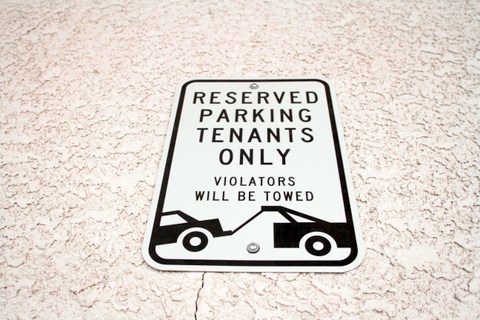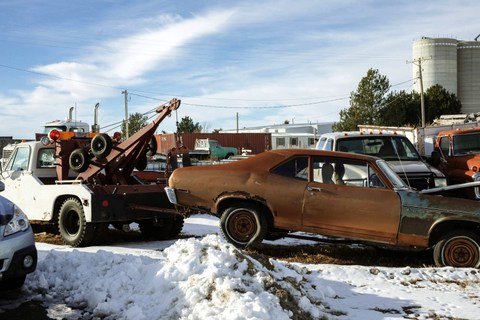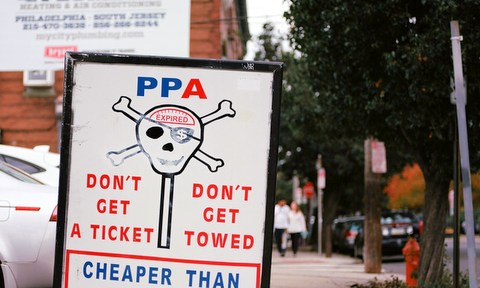The Steps To Take When Your Car Is Towed
This article may contain affiliate links.
Getting your car towed can be a stressful and unexpected event, often leaving you wondering what went wrong. While every situation is different, there are some common reasons your car might be towed. By understanding these scenarios, you can avoid the hassle and expense that comes with retrieving your vehicle.
Parking in Restricted Areas

One of the most common reasons for towing is parking where you shouldn’t. Whether it’s a no-parking zone, fire lane or private property, parking in a restricted area often leads to trouble. Some areas are strictly monitored, with towing companies ready to remove vehicles that aren’t compliant. Always check for signage when parking, especially in urban areas, as the rules may not always be obvious. A quick glance at the signs can save you hours of inconvenience and hefty towing fees.
What to Do If It Happens
If your car gets towed for this reason, the first thing to do is locate it. Many cities require towing companies to report vehicles they’ve taken, so a call to your local police department or a parking authority office is a good starting point. Steps to take if your car is towed include verifying where it was taken, collecting the necessary documents like ID and vehicle registration, and paying the associated fines.
Unpaid Parking Tickets or Violations
Ignoring unpaid parking tickets or traffic violations might seem harmless at first, but they can lead to serious consequences. Some municipalities enforce towing as a way to deal with outstanding fines, especially if you’ve accumulated multiple tickets. It’s their way of ensuring that the issue is resolved promptly. Don’t assume you’ll get a warning–in many places, towing can happen without notice.

Stay Ahead of Ticket Delinquencies
To avoid this situation, stay on top of your parking and traffic fines. Many areas allow you to pay online, making it easier to stay current. If you’re unsure whether you owe fines, most local governments offer online tools to check. Keeping these records up to date helps prevent unpleasant surprises.
Expired Registration or No Insurance
Operating a vehicle with an expired registration or without proof of insurance can result in your car being towed on the spot. Law enforcement takes these matters seriously because they impact road safety. Even if your registration is only recently expired, it’s enough to raise a red flag during a routine traffic stop or parking check.
Avoiding This Issue
Set reminders for renewal dates to ensure your registration and insurance are always current. Many states offer automatic renewal options, which can take the stress out of remembering deadlines. Keeping your documents accessible in your car is also a good habit in case you’re ever asked to provide proof during a stop.
Mechanical Issues or Safety Hazards
A car that breaks down in the middle of the road or poses a safety risk can quickly become a towing candidate. Whether it’s a stalled engine, flat tire or another issue that leaves your vehicle inoperable, authorities may order a tow to keep traffic flowing and ensure everyone’s safety.

How to Be Prepared
Regular vehicle maintenance is key to avoiding breakdowns. Schedule routine checkups and address small problems before they escalate. In addition, carrying an emergency kit with essentials like jumper cables, a tire repair kit and a flashlight can be a lifesaver if you encounter trouble on the road.
Illegal Modifications or Abandonment
Vehicles with illegal modifications or those left abandoned for long periods are also frequent towing targets. Modifications that violate local laws, such as excessively dark window tint or illegal exhaust systems, can draw attention and lead to towing. Similarly, leaving a car parked on a street for weeks without moving it may result in it being tagged as abandoned.
Keeping Your Car Safe
Ensure any modifications to your vehicle comply with local regulations. If you plan to leave your car parked for an extended period, notify local authorities or park it in a safe, legal location like a driveway or garage. This reduces the risk of it being mistaken for being abandoned.
What Happens After Your Car is Towed?
Once your car is towed, retrieving it requires a bit of effort. Typically, you’ll need to visit the tow yard where it’s being held and present identification, proof of ownership and payment for the associated fees. These costs can include the towing fee itself, storage fees for each day your car remains in the lot, and any fines related to the reason for the tow. Acting quickly is essential, as fees tend to add up the longer your car stays at the yard.
Helpful Tip: Don’t Delay
The sooner you act, the less you’ll pay. Many tow yards charge daily storage fees, so retrieving your vehicle promptly can save you money. Keep your documents handy, as missing paperwork can delay the process.
How to Avoid Towing Altogether
The best way to avoid towing is to stay proactive about your car’s condition, paperwork and parking habits. Double-check signs before parking, pay any outstanding fines and ensure your registration and insurance are always up to date. Taking these precautions might seem small, but they go a long way in preventing unnecessary stress.
Take Control of the Situation
While no one plans to have their car towed, understanding the common reasons behind it can help you avoid costly mistakes. By staying informed, keeping your vehicle in compliance with local laws and maintaining good habits, you can significantly reduce the chances of your car being towed. When it comes to protecting your car and wallet, a little preparation can make all the difference.

3 thoughts on “Why Your Car Might Be Towed and What You Need to Know”